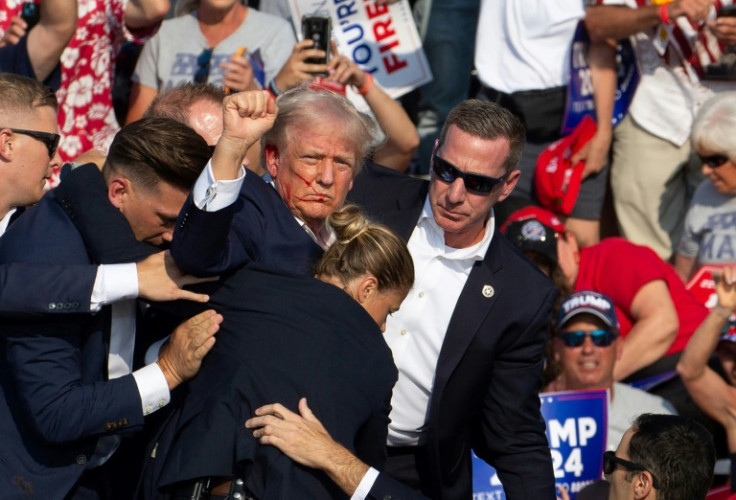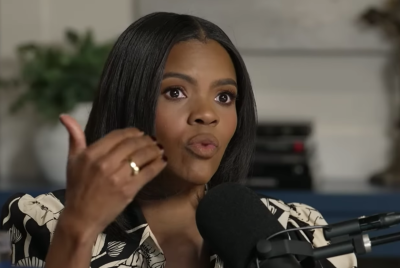Six Secret Service Agents Suspended Over Trump Assassination Attempt – But Here's Why They Weren't Fired

Nearly a year after bullets shattered the calm of a Pennsylvania campaign rally, the US Secret Service has suspended six agents for their role in the security failures that allowed a gunman to attempt the assassination of President Donald Trump.
Though they haven't been removed from their posts, the disciplinary action, confirmed on 9 July by agency officials, comes just days before the first anniversary of the July 13, 2024, shooting at Butler Farm Show grounds that left Trump wounded, one rallygoer dead, and two others critically injured.
Focusing on the Root Cause
Matt Quinn, Secret Service deputy director, told CBS News that the six Secret Service agents faced disciplinary action, which ranged from 10 to 42 days of unpaid leave with no benefits.
After serving their suspensions, the employees were reassigned to limited duties or positions with reduced operational responsibilities.
It is worth noting that despite the 'severity' of the security lapse during the assassination attempt, Quinn said that they have no plans to fire said agents, as they are focused on fixing the issue internally and on improving their security detail.
'We aren't going to fire our way out of this. We're going to focus on the root cause and fix the deficiencies that put us in that situation,' he said.
Quinn also stressed that they are accountable for the lapses in the incident, which transpired at Butler, Pennsylvania, stating, 'Secret Service is accountable for Butler. [It] was an operational failure and we are focused today on ensuring that it never happens again.'
Attack Was 'Preventable'
Pertinently, back in December 2024, a bipartisan House task force unveiled a 180‑page final report detailing two assassination plots against then President‑elect Trump—on July 13 in Butler and September 15 in West Palm Beach, FL.
In it, lawmakers concluded the Butler attack was 'preventable,' citing cascading lapses in Secret Service planning, leadership, and coordination that enabled the shooter to fire eight rounds.
The Task Force found that the tragic and shocking events in Butler, Pennsylvania, were preventable and should not have happened. There was not, however, a singular moment or decision that allowed Thomas Matthew Crooks to nearly assassinate the then President-elect, it stated.
Thomas Crooks was identified as the 20‑year‑old gunman who opened fire from the roof of a nearby building during a Trump campaign rally, striking the President in the ear and tragically killing rally attendee Corey Comperatore and injuring two others. He was only neutralised when a Secret Service counter‑sniper team sniped him.
Improvements Post-Butler Incident
The Butler incident triggered the resignation of then-Secret Service Director Kimberly Cheatle, who called it 'the most significant operational failure of the Secret Service in decades.' A second assassination attempt against Trump in West Palm Beach, Florida, weeks later intensified scrutiny of the agency's protective capabilities.
Following the suspension of six Secret Service agents, Quinn emphasised that personnel were disciplined in accordance with a process mandated by federal law. He also noted that the agency has been working to address the underlying causes of the operational failures that occurred in Butler.
As part of these efforts, the Secret Service has deployed a new fleet of military-grade drones and mobile command posts, which now enable agents to communicate directly with local law enforcement over radio, a level of interoperability that was lacking last year.
The interoperability aligns with the recommendation from the bipartisan House task force which noted that the Secret Service must integrate all security plans from every law enforcement agency involved in an event, deploy its agents to cover any security gaps when local forces fall short, assess and mitigate all possible line-of-sight threats, mandate the use of counter-surveillance teams for any large outdoor gatherings, and improve insufficient training standards.
As the agency works to implement new technologies, tighter planning, and stronger partnerships with local law enforcement, its mission faces renewed scrutiny. Whether these changes will be enough to restore public confidence and prevent another tragedy remains to be seen. Still, the lessons from Butler are likely to shape presidential protection for years to come.
The suspensions serve as a sobering reminder of the agency's obligation to protect America's leaders and the consequences when that sacred duty fails.
© Copyright IBTimes 2025. All rights reserved.

















